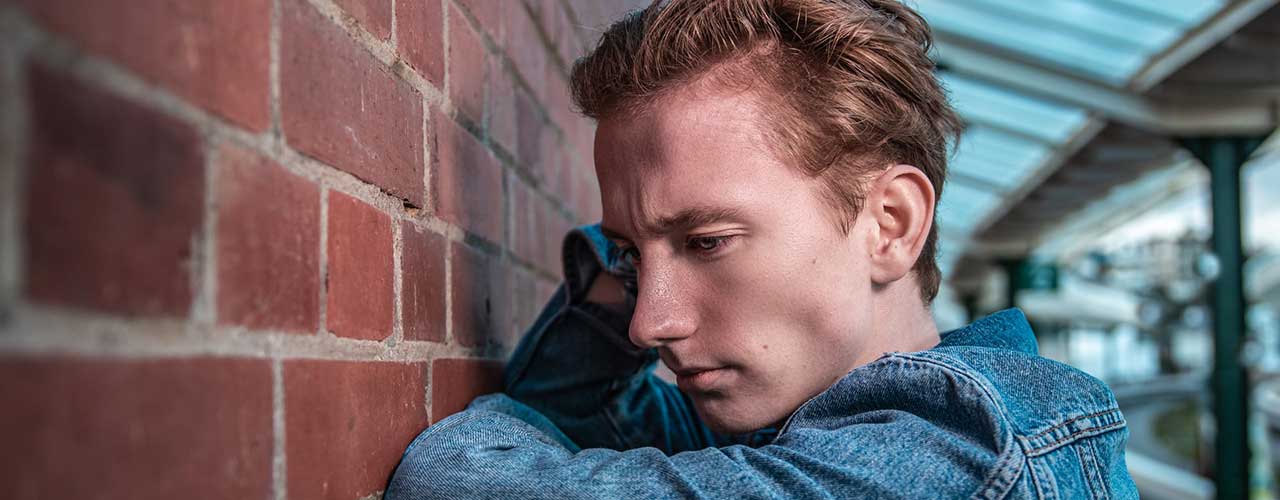Having a son who has a drug addiction can be highly distressing for parents and other family members. As a parent, you expect to stop worrying so much about your son as he grows older. However, if addiction is impairing your son's life, you may find yourself fearing what the future holds or even what tomorrow may bring.
Although you will want the best for your son, and you will want to be there to support him every step of the way, like many other parents, you might not know how to deal with his drug addiction.
It can be hard to understand what the right thing to do or say is, especially when emotions are high. Sometimes all you can do is offer encouragement for your addicted son to seek help. Recovery is possible, but only if he wants to change and is willing to commit to addiction treatment and sobriety.
Addiction affects the whole family, but we are here to help. Contact our rehab center today for confidential advice and support.
What Is Substance Abuse?
Substance abuse occurs when alcohol or drugs are misused for recreational purposes, such as to experience a euphoric high rather than their intended purpose. However, it's essential to understand that addiction is not a choice. No one intends to misuse substances, but addictions do unfortunately arise.
When it comes to alcohol abuse, many people overlook the government guidelines for alcohol consumption, which recommends less than one drink per day for women and less than two drinks per day for men. Instead, thousands of people engage in alcohol abuse or heavy drinking without realizing it.
Heavy drinking is classed as more than seven drinks per week for women and 15 drinks per week for men. This is considered alcohol abuse, which can lead to alcohol poisoning, addiction, and various physical and psychological health problems.
In addition to abusing alcohol, many people abuse drugs. Taking illicit drugs is illegal and often results in harmful consequences. But it's not just illegal drugs that are abused. Misusing prescription drugs is just as dangerous.
Why Do People Abuse Drugs?
People abuse drugs for many different reasons. Sometimes people misuse prescription drugs by taking a higher dose than recommended or continuing use for longer than advised.
As medical professionals prescribe prescription drugs, many people presume that doing so is not harmful. However, many prescription drugs, such as opioids, are incredibly addictive and should only be taken for a short period.
Other times, people may misuse prescription drugs through self-diagnosis, and they may believe that they are doing the right thing.
People often use street drugs as a last resort because they can no longer obtain prescription drugs through legitimate means. Heroin, for example, is a common street drug that many turn to after developing an addiction to prescription painkillers.
Sadly, it's common for people to abuse drugs to cope with difficult feelings. In fact, addictions often co-occur with mental health disorders. Rehab centers, like our own, can assist with co-occurring mental illness, so anyone who abuses drugs and has a mental health problem will be able to secure the treatment they need.
What Is a Substance Use Disorder?
Substance use disorder (SUD) is the medical term for drug addiction. It is a disease and an illness like any other. Addiction happens slowly and often without the person realizing it. Over time, the brain's reward system adapts to the effects of substances, causing many people to develop a dependency.
If your son has a substance use disorder, it will be hard for him to stop using drugs. Over time, taking drugs becomes a compulsion, and he will engage in drug abuse at all costs, despite adverse consequences to his health and well-being. Without professional help, addiction becomes a vicious circle that is hard to escape.
Despite the adverse effects of substance use disorders, help is available. Regardless of how severe your son's addiction is, lifelong recovery is possible. With professional support and guidance, your son's addiction can be overcome.
What Are the Signs of Drug Addiction?
You might not realize your son is using drugs at first. After all, it's common for people to hide their drug use from friends and family because of shame, stigma, and a fear of being called out.
Although your son may be able to hide his drug addiction for some time, he will begin to experience and display some physical and behavioral symptoms as his addiction becomes more severe.
Some typical behavioral signs that a person has a drug addiction include:
- Secretive behavior, lying, denial, and defensiveness
- Stealing money
- Erratic mood swings
- Paranoia
- Isolating from friends and family
- Dropping commitments and responsibilities
- Losing interest in things that were once important
- Lack of hygiene and self-care
- Sleeping problems
- Exacerbated mental health issues
- Risky behavior, such as driving under the influence
Although these behaviors are frustrating and distressing to witness, they are indications that your son is suffering from an all-consuming addiction.
Though seeking help and support can be daunting, the quicker addiction is spotted, the easier treatment and recovery may be.
How Do I Confront My Son About His Addiction?
If you suspect your son has a substance addiction, it's normal to want to confront him. However, it's essential to find a suitable time to approach him and make sure you know what to say and do. Typically, we recommend approaching your son when he is sober.
When the time is right to approach your son about his addiction, you may want to take advantage of some of the tips below.
Stay Calm
It's important to stay calm when confronting your child. If you seem angry or confrontational, he may shut down or start acting defensive or argumentative. However, if you are calm, he is more likely to be receptive.
Before talking to your son, it might help to make some notes to ensure the conversation stays on track. It's also beneficial to research what treatment could look like, so you can share treatment options with your son if he seems open to the idea.
Get help: Drug Rehab Santa Ana
In addition to helping you remain calm, making some notes will prevent you from deviating from the goal for your child to seek professional treatment and support.
Stay Firm
Your son will likely try to brush off the extent of his problem. Addiction is an all-consuming compulsion to use substances, so there may be some resistance to treatment.
Someone with an addiction may not see the extent of their problems. Likewise, they may not want to face them or hear hard truths, no matter how essential it is to acknowledge they need help.
You must stay consistent in your stance on your child's addiction. For example, you could tell him that you are there to support him in overcoming his drug abuse, but you do not endorse and will not tolerate active addiction.
Set Healthy Boundaries
As a parent of a child struggling with addiction, you can only do so much. It's easy to become consumed by your child's actions due to worrying that something terrible will happen. You want to help as much as possible, but there comes the point where helping becomes enabling.
Ultimately, your child must take responsibility for his addiction. You cannot force or bribe him into recovery. This decision must come from him alone.
Stage An Intervention
If your son is not open to having a conversation with you or is unwilling to attend rehab, staging an intervention may be best.
Counselors facilitate interventions that see yourself and other family members confront your son. Interventions aim to ensure your son is aware that people are worried about him and encourage him to go to rehab.
What Does Substance Abuse Treatment Look Like?
If your son agrees to seek help for his addiction, you or he will need to consult a rehab center about treatment options.
Usually, inpatient rehab is recommended. Here, treatment includes detox under 24-hour supervised professional care. Detox lasts approximately one week, with any withdrawal symptoms peaking after day three.
Detox is only the beginning of addiction recovery. As part of the recovery process, your son will learn relapse triggers and skills needed for successful long-term recovery.
Therapy and programs such as Alcoholics Anonymous (AA) and 12-step groups will guide your son after the initial treatment, as will the ongoing support of family and friends.
Make Time For Yourself
While helping your son overcome his addiction will be your primary goal, you must take time to focus on your own life during this period for the sake of your health and well-being.
You may find comfort and solace in support groups with other parents of addicted children where you can talk to people who understand what you are going through. Therapy is also a good tool for processing your feelings.
It might be helpful to attend family therapy with your child and other family members as part of his addiction treatment. Doing so will help you learn how to best help him in his recovery journey.
If you are concerned that your son has an addiction and needs help, please contact us today. We can talk you through our treatment options and offer you guidance and support.






